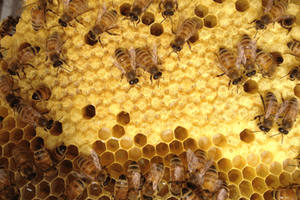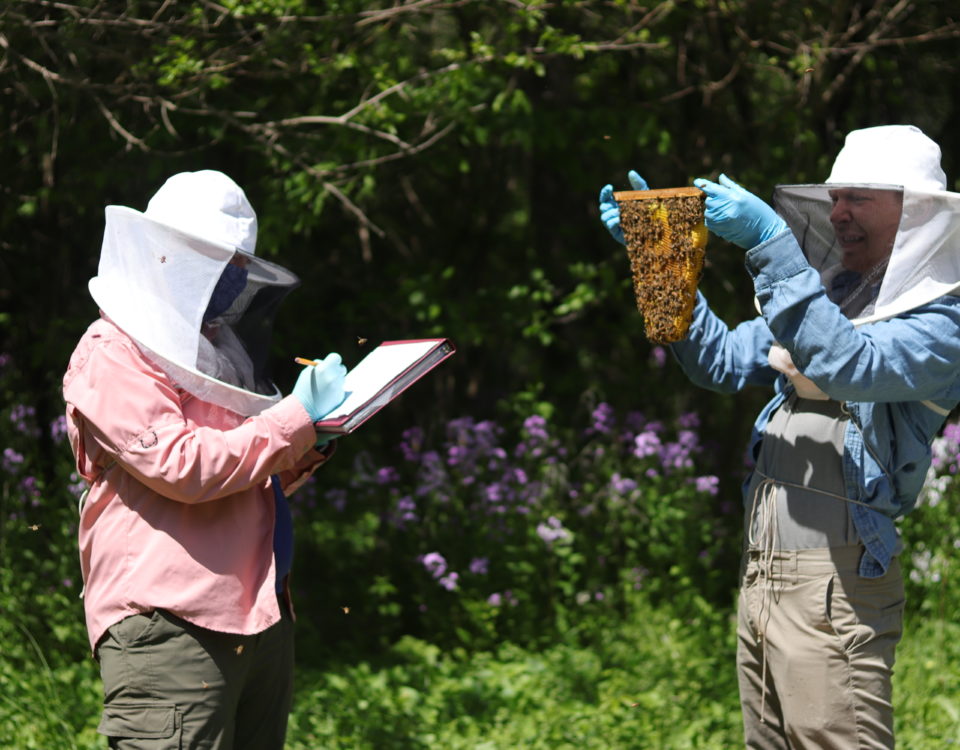- All-In-One Beekeeping for the Bees
- +1-608-728-8233
- info@beepods.com
3 Crucial Reasons You Should Be Tracking Your Hive Data


Beekeepers, I want you to imagine you’re visiting a doctor’s office. You go into your appointment. Without an exam or any notes about your symptoms or health history, your doctor makes a diagnosis and prescribes a treatment. It probably wouldn’t be the safest or healthiest diagnosis you could trust, now, would it?
That scenario is similar to a beekeeper caring for their bees without tracking their hive data. Data provides you with a wealth of information to make informed and fact-based decisions to support your bees.
Keep reading to learn the reasons why tracking your hive data is critical for beekeepers.
Bee-come a Hive Inspection Pro
Hive inspections are essential tasks for beekeepers at every level. Tracking your data at each inspection will help you make sure that you’re prepared to observe important developments at your hive and come ready to do your work. If you’re not recording your data yet, grab our Beepods Inspection Kit and get started! It has everything you need to perform a thorough inspection and track all of the critical data you should record.
When you’re regularly recording data on what you’re seeing in your hive, you are creating a habit. Those habits allow you to carry out thorough and successful inspections that cover all your bases and equip you to support your bees.
For example, tracking data surrounding your bees’ activities, like how much propolis they’re creating, prompts you to pack the right equipment for your inspections. If your bees are making a lot of propolis, you know that with a Beepods Hive Tool in your arsenal, you’ll be able to scrape it away as needed. When you write down why specific tools or inspection steps are necessary, you’re more likely to remember to bring them.
Create a Hive History
Every time you record data on hive observations and activities, you’re building a historical record for your hive. Beekeepers can analyze and assess the causes behind major developments at the hive instead of working off of symptoms or what they’re seeing at face value. When you analyze causes vs. symptoms, you understand why things are happening in your hive.
Going back to my analogy about the doctor’s office: A doctor who views a patient’s health history will make a much better-informed diagnosis than one seeing a patient and only observing their symptoms that day. When beekeepers track and start to identify the causes behind problematic bee-haviors, they’re able to tackle the root of the issue.
Our Healthy HiveTM Management Software, available to Beepods Lab members, is ideal for creating a comprehensive hive data history. Tracking the data with the software develops a story of your bees’ health. It also helps our Beepods community develop a cumulative data source we can all learn from.
Get Fact-Based Advice and Guidance
At Beepods, we’re all about sharing education so that beekeepers everywhere, at every level, can practice sustainable beekeeping. One of the best ways beekeepers share and learn from each other’s experiences is data-driven information. When beekeepers request advice and provide data to support their observations, they will receive the best resources and guidance from their beekeeping community.
Tracking your data allows other beekeepers to see how your observations align with their own data records. When beekeepers share their data, they work together to assess issues, discover similar behaviors among their bees, and learn from each other’s observations and experiences. By comparing data we can better understand common beekeeping issues like Varroa mite infestations and winter dead-outs.
In Beepods Lab, beekeepers have access to feedback forums, opportunities to learn from and communicate with other top bar beekeepers, and a community of non-traditional beekeepers to connect with. It’s the perfect place to share your data and learn from other beekeepers’ experiences.
Conclusion
Don’t go to another “appointment” with your bees without filling out their “chart!” Tracking your hive data makes you an informed and engaged beekeeper. Your data helps you perform more productive inspections and understand your bees’ history so you can address the present. Then you get the best insights and advice from your beekeeping community. So, the next time you visit your hive, track, track, track!
Kanoe Riedel
Latest posts by Kanoe Riedel (see all)
- This Spring, Don’t Forget Why Bees Are So Important to Our Environment - March 26, 2021
- 11 Awesome Uses for Your Stored Honeycomb - March 2, 2021
- How the Right Beekeeping Equipment Makes Inspections Better for Beekeepers and Bees - February 12, 2021



